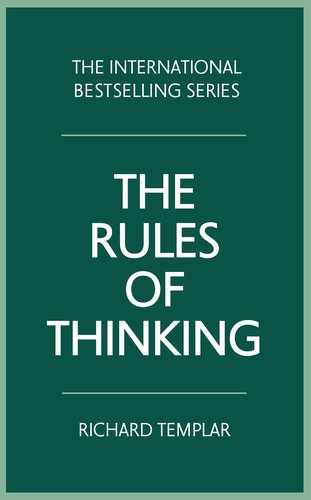Never mind other people’s motives for a moment – what about your own? What do you stand to gain from thinking as you do? It’s easy to think in a way that feeds your own self-interest without ever being aware that you’re doing it. It’s possible that your way of thinking will lead you to a decision that will make you better off financially, or give you higher status, or enable you to live in a better area. This is something that I notice often affects politicians, who are very good at thinking in a way that is likely to get them re-elected. Most of them find it quite hard to reach conclusions that won’t sit comfortably with the voters.
We’ve all met vegetarians who stopped eating meat because of their ethical views, who have somehow managed to justify revising those views when they discover how much they miss meat. No, I’m not knocking it, I’m one of them myself. The answer is not necessarily to revert to vegetarianism, just to be more honest with yourself about why you don’t.
However, the self-interested way of thinking isn’t always so tangible. I spoke to someone recently who applied for a job he really wanted and didn’t get it. He asked for feedback and, initially, took it on board. But after he’d had a while to dwell on it, he slowly came around to thinking that the feedback was unfair and the interviewers were at fault for failing to see his strengths. Now actually, as you and I know, it isn’t the interviewers’ responsibility to search for the qualities they want – it’s the candidate’s responsibility to demonstrate them. But this chap wanted it to be the interviewers’ fault he didn’t get the job, because that soothed his ego, so he thought about it in a way that convinced him he was the best candidate. Of course, the problem with this is that he hasn’t learnt anything for next time, so presumably he’s less likely to get the next job he applies for.
You’ve got to be honest with yourself and you won’t always like it. If the unsuccessful interviewee wants to think truthfully, he’ll have to accept that either he wasn’t right for the job or, if he was, he failed to show it.
Self-esteem is a big part of what tempts us to skew our thinking to suit our purposes. Envy is another and is often related to self-esteem. Easier to think your colleague got that lucrative account because the boss favours them, than because they might actually be able to handle it better than you. And, again, you won’t get the next big account either if you go down this path, because it blocks you from recognising the need to improve.
If you’re a people-pleaser, that opens up huge scope for cover-up thinking. Most of us want to please at least a few people and, if you think the boss would prefer you to agree with them, or you’ll fit into your friendship group better if you share their views, there’s a motive to fix your conclusion before you’ve thought it through, and then retro-fit your thinking process to suit. Great for keeping in with people (at least in your own mind), not so good for becoming an independent thinker.
SELF-ESTEEM IS A BIG PART OF WHAT TEMPTS US TO SKEW OUR THINKING
